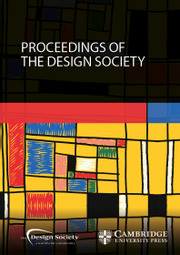Crossref Citations
This article has been cited by the following publications. This list is generated based on data provided by Crossref.
Seipolt, Arne
Buschermöhle, Ralf
and
Hasselbring, Wilhelm
2025.
Digital Twins in Manufacturing: A Systematic Literature Review With Retrieval-Augmented Generation.
IEEE Access,
Vol. 13,
Issue. ,
p.
172562.
Arshad, Hafiz Talal
Wang, Zhihui
Ji, Tang
and
Peng, Tao
2025.
Digital Twin-driven carbon emissions management in manufacturing.
Manufacturing Letters,
Vol. 44,
Issue. ,
p.
1718.
Farrokhabadi, Amin
Lu, Houyu
Sreekumar, Abhilash
Ashrafian, Mohammad Mahdi
and
Chronopoulos, Dimitrios
2026.
Continuous fiber cellular structures: a state-of-the-art review on structural design, optimization, applications and future challenges.
Thin-Walled Structures,
Vol. 219,
Issue. ,
p.
114238.

